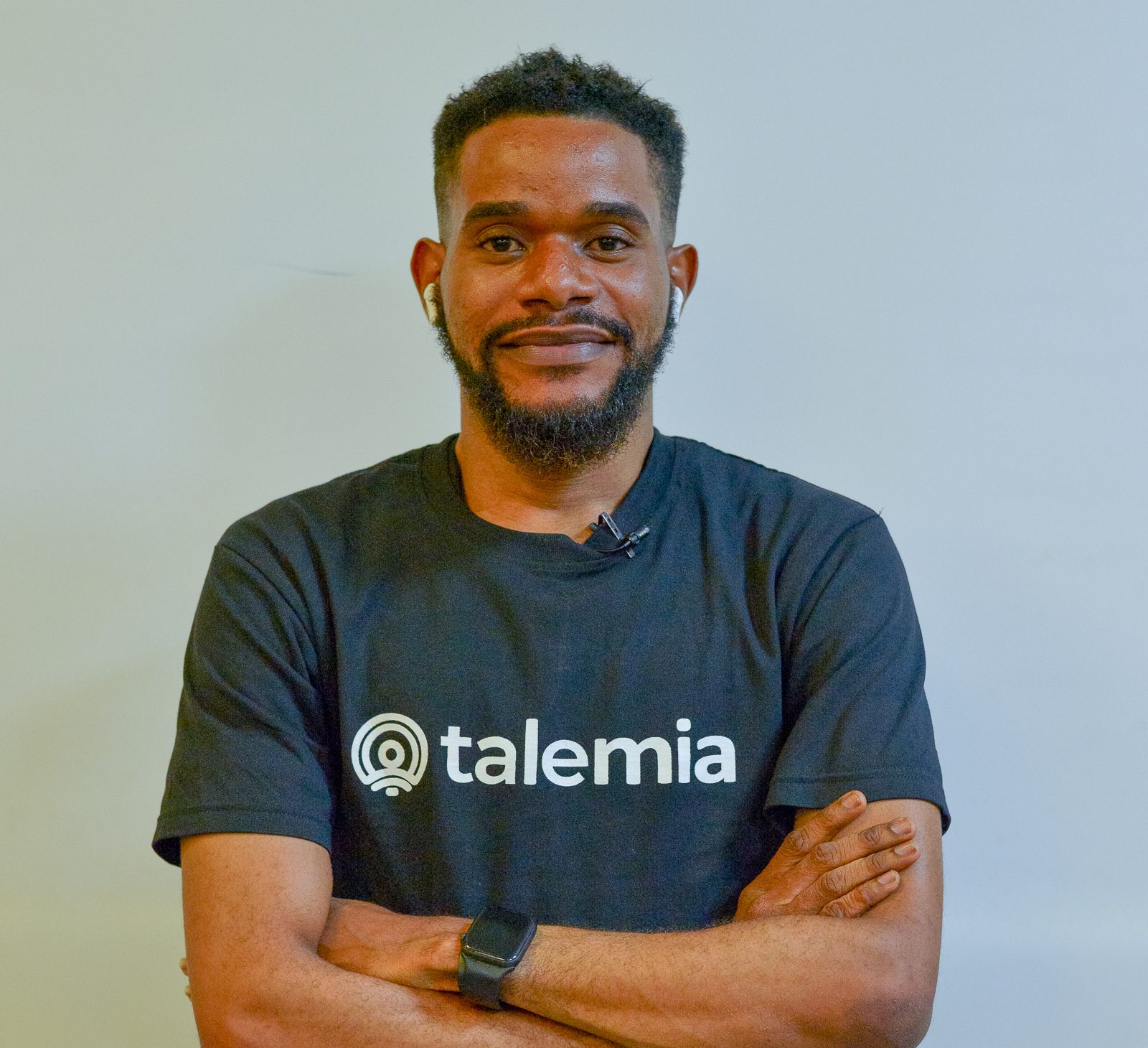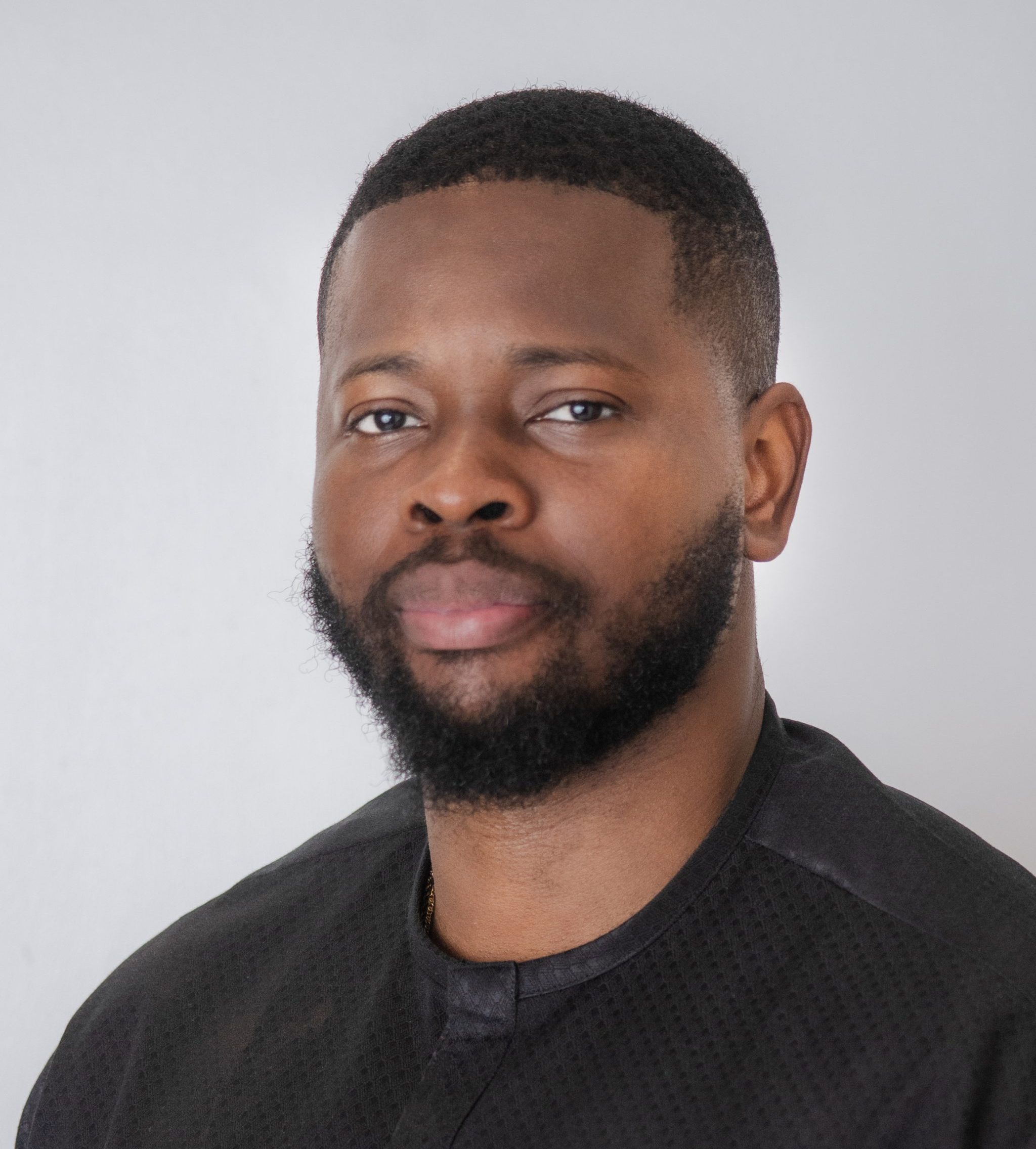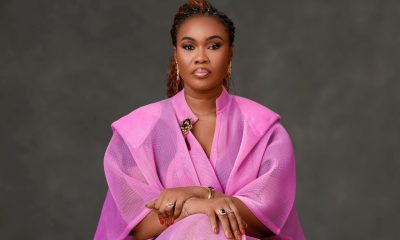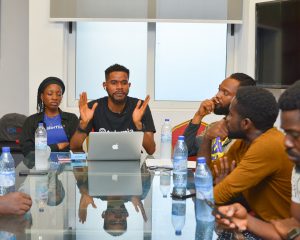Industry Expert
Communicating Impact: Insights from Precious Aniekwena, Development and Marketing Expert

Precious Chinwe Aniekwena is a development and marketing communications professional, specialising in transforming complex ideas into impactful, actionable messages. With experience spanning development, tech, and brand marketing. She has led marketing communications for brands like Esri ArcGIS and Trimble Geospatial, and currently supports national data engagement at the UK Office for National Statistics. In this exclusive interview with Alaba Ayinuola of Business Africa Online (BAO), Precious speaks on her work at the intersection of AI, storytelling, and audience engagement to deliver measurable business outcomes. Excerpts.
Alaba: Could you briefly share your background and experience in development communications and marketing communications?
Precious: I enjoy helping organizations engage communities, build partnerships, and turn data into compelling narratives. I started out in development communications but quickly moved into business communications where my role sits at the intersection of development and marketing communications. Over time, that evolved into working in tech marketing, helping to bridge the gap between technical innovation and public understanding across West Africa.
Now, at the UK Office for National Statistics, I use those same skills to engage the diverse public more effectively to support national data collection. Across both fields, my focus has been on turning complex ideas into messages that spark action. That is why my recent research at the University of Essex explored how AI is reshaping marketing and communications. It felt like a natural extension of my work, and it has made me more enthusiastic about the future of the industry.
Alaba: What’s your approach to developing a comprehensive marketing communications campaign?
Precious: I always start with a roadmap—getting clear on the why behind the message. 100% of the time, I am researching in-between the lines of the core objective including historical ethnographies, gaining user behaviour insights to shape the foundation. Once that’s solid, the rest of the campaign architecture takes shape. I build multi-channel strategies that balance storytelling with analytics. For example, audience-driven research can consistently reduce resource waste by 20– 50%. That is why I generally approach comms the same way engineers build systems—drawing meaning from data, building user trust, creating value, and driving innovation. It’s not just about broadcasting—it’s about connection.
Alaba: Can you share an example of a successful brand marketing and development communications campaigns you led?
Precious: I took on the challenge of leading go-to-market strategy for enterprise solutions like Esri ArcGIS and Trimble Geospatial across West Africa at Sambus Geospatial. The goal was clear: reposition the brand, increase product adoption, and build credibility with technical decision-makers in sectors like energy, defence, and urban planning. I crafted a multi-pronged strategy—combining high-impact PR, customer-centric messaging, digital content tailored to user pain points, and technical workshops that highlights product values.
A defining moment was our debut at NOG Energy Week—West Africa’s largest Oil, Gas & Energy conference. We used this tradeshow as a launchpad to demonstrate real-world use cases and product capabilities, resulting in high-value leads, renewed government-sector partnerships, and major sales targets for that year. What really drives my marketing approach is customer advocacy and insight.
Alaba: How do you measure the impact and effectiveness of brand marketing and development communications campaigns?
Precious: I bake in KPIs from the start and use agile feedback loops to test, learn, and optimize as we go. Since measuring impact goes beyond vanity metrics like impressions or likes—they’re directional, not definitive. I take a hybrid approach that combines quantitative data with real human feedback. On the data side, I focus on metrics that map directly to objectives like campaign-driven lift in brand search. Qualitatively, I listen for message resonance in things like shifting perception or building trust. At the end of the day, I define success by outcomes relative to output.
Alaba: What are some of the most promising applications of technology for marketing communications, in your opinion?
Precious: Across sectors, I think some of the most promising applications of technology in marketing communications right now are all about personalization, accessibility, and engagement. In the SaaS space, AI-driven personalization and predictive analytics are transforming how we connect with users. We are now able to tailor content to individual needs, improve onboarding flows, and spot churn before it happens, which is huge. In the public sector, tools like interactive data visualization and real-time sentiment analysis have become invaluable for turning complex policies into content people can actually understand and act on.
Alaba: How do you think the tech industry can be encouraged to prioritize development outcomes and social impact?
Precious: For tech industries to drive real development and social impact, whether it is martech, fintech, healthtech, edtech or any other sector, the most successful innovations must solve real, local problems that people face. These goals must be core to the business—not just labelled CSR addons. It is not just about building great products and running great marketing campaigns. It is all about involving local communities in the process. When we design solutions with people, not just for them, we move beyond buzzwords and hype and start driving actual, meaningful change.
Alaba: How do you stay up-to-date with the latest trends and innovations in tech, and how do you apply this knowledge to your marketing communications work?
Precious: I make effort to track both global and local tech trends through relevant academic and professional bodies like CIPR-UK and close insight from peers. I am big on social listening, but I learn mostly from thought leadership content and industry events to keep a pulse on where innovation is heading.
Alaba: Lastly, what trends do you see shaping the industry in 2025, and your advice for marketing communications professionals?
Precious: AI and automation are really starting to streamline everything, from customer support to personalized email campaigns, and that is helping businesses compete at scale. As we settle in Q2, content marketing is becoming more interactive and immersive. Today, marketeers and communications professionals are more than ever, required to leverage AI advancements to stay agile. The key is to stay flexible, stay true to your brand values, and still make the most of these tools.
Another trend gaining momentum is purpose-led marketing, take advantage as customers are increasingly drawn to brands that reflect their values not just about product solutions. Think about this, people choose Apple or Tesla not just for their functionality but as a reflection of certain lifestyle, a level of class and professionalism. Ultimately, these trends become not just a tool but a bridge between message and meaning when used thoughtfully.
Industry Expert
Behind the Scenes of Venture Building: An Insider’s Perspective

Victor Onyekere is a Venture Builder and Startup Operator with close to a decade of experience designing structures and systems that help entrepreneurs build, launch, and scale profitable ventures. He has directly supported the launch of 10 startups generating over $1B in cumulative revenue, and trained 15,000 talents across top companies like Bolt, Glovo, Uber, Chowdeck, Cars45, Jiji, Gokada, and VerifyMe. Victor is the Founding Curator at BuildersCabal – an impact-driven community for Africa’s tech builders including founders, operators, developers, and innovators who are actively building and scaling tech companies across the continent. He is a recognized Global Talent in Digital Technology by the UK Technation. In this exclusive interview with Alaba Ayinuola of Business Africa Online (BAO), Victor’s insights provide a glimpse into the world of venture building and startup operations; his expertise offers a unique perspective on the challenges and opportunities of building successful startups. Excerpts.
Alaba: Can you briefly tell us about your experience as a Venture Builder and Startup Operator?
Victor: For the past seven years, I’ve worked with ambitious entrepreneurs to build and launch technology ventures that have expanded from Nigeria into Ghana, Kenya, Rwanda, Canada, the USA, and the UK, generating over $1 billion in cumulative revenue. My turning point as a venture builder came in 2018. Having coached over 100 entrepreneurs, I noticed a recurring problem: a lack of defined structures and systems to ensure their solutions could scale. I strongly believe that startups fail primarily due to poor execution. The ones that can execute better have a significantly higher chance of succeeding.
This conviction led me to launch Talemia, a venture-building technology company dedicated to solving this exact problem. I designed the frameworks that enabled high-growth entrepreneurs to build and launch startups in logistics, finance, food, and health. I’ve had the privilege of directly supporting companies like TruQ, Centiiv, Lendha, SUWK, Gonomad, Carschek, Pennyvest, and Afiari. Some of these ventures are now backed by leading global firms such as Techstars, Google for Startups, and Baobab Network.
Alaba: Can you walk us through your process for building a startup from zero to launch?
Victor: I’ve always believed that going from zero to one is harder than going from one to ten. The first is about creation, and the second is about innovation. In my work as a venture builder, I developed the VO-Ideation Cycle, my personal process for taking a concept from an idea to launch. The process consists of — Problem Curation, Problem Mapping, Idea-Problem Fit, Idea Validation, Proof of Concept, and MVP.
My process starts with the problem, not the idea. The most common mistake entrepreneurs make is starting with a fancy idea. Instead, I always start with problem curation and problem mapping to extract the core idea. From there, I conduct three critical “fit” tests to ensure we’re on the right track:
- Idea-Problem Fit: Does the idea truly address the defined problem?
- Problem-Solution Fit: Is the proposed solution the right one to solve the problem?
- Product-Market Fit: Is there a genuine market need for the product we’re building?
I always deploy a lean approach when designing and launching a Minimum Viable Product (MVP). I believe a significant part of your MVP has already been built by what exists around you. For example, when working with the founding team at TruQ, an operating system for third-party logistics, we designed their MVP using a simple tool: Microsoft Excel. We used it to power the first 100 trips, which allowed us to validate that the business model was scalable and ready for the next phase of development.
Alaba: What’s your strategy for launching, and your approach to scaling a startup?
Victor: There’s something we believe at Talemia and BuildersCabal — it is that ideas are worth $0 without execution. There is nothing special about ideas, and I advise entrepreneurs not to be obsessed with them. When founders pitch to me, I assess them against three key metrics to determine if the idea is worth pursuing. I call it The Reality Check:
- The Gap in the Market — Problem.
- The Market in the Gap — Business.
- The Wide Enough Market in the Gap — Scale.
The gap in the market helps identify if there is a real, unsolved problem. A business can’t exist if there isn’t a problem to solve. Once we’ve established a problem, we need to see if it can become a viable business. A market exists when a group of people needs what you have and is willing to pay for it. Some ideas will end up as hobbies, as no market can unlock revenue for them.
A viable business isn’t enough; it must have the potential to scale. This is where we determine if the market is large enough to support significant growth. This is why venture capitalists will measure your potential for scale based on the size of the market. Scale happens when you can repeatedly replicate success for similar audiences in different environments.
Alaba: What are some of the biggest challenges you’ve faced as a Venture Builder?
Victor: One of my biggest challenges is the mental and intellectual demands of the work. I spend hours of my time simultaneously thinking with different teams across different sectors, constantly reading, researching, and learning about past, present, and future trends. While the result is deeply fulfilling, the journey is mentally taxing. Another persistent challenge is access to the right talent with the necessary skills, grit, and passion to build these companies in their early stages. However, the most significant hurdle is still access to capital, which remains a primary challenge for many early-stage ventures in the ecosystem.
Alaba: How do you secure funding, and determine the valuation of a startup?
Victor: The venture ecosystem is made up of many key players. I’ve focused on building important relationships with venture capital firms and working closely with their venture scouts. I make warm introductions directly to these firms or collaborate closely with the venture scouts working at these firms. I also work with founding teams to secure equity-free funding in the form of grants, and I’ve successfully helped startups secure over $100,000 in grants. At the early stage, a startup’s valuation is less about accounting and more about its perceived potential.
I evaluate key factors such as:
- Market size.
- Market value of similar products.
- The startup’s current stage and traction.
- The founder and team’s experience.
The simplest method for valuation is to divide the investment amount by the percentage of equity offered.
Alaba: What advice would you give to aspiring entrepreneurs and Venture Builders?
Victor: I would advise aspiring entrepreneurs to view a job as a paid learning opportunity to gain practical business experience. You get to fail freely while the organization bears the risk. When you look at the patterns, you’ll notice that many high-growth companies were built by ex-employees of other high-growth organizations. For aspiring venture builders, my advice is to build your patience capital. Starting from zero is incredibly difficult, which is why many prefer to work with revenue-generating companies. You must have a genuine passion for creating and building from the ground up. It’s a rewarding journey if you can delay gratification and trust the process.
Alaba: Could you briefly share what you are solving with BuildersCabal?
Victor: Communities play a vital role in the growth and scaling of companies. We are solving the problem of a fragmented ecosystem. There is still limited access to networks and resources for early-stage startups. The tech industry is currently operating in silos, with founders, operators, investors, and developers all separate from each other.
BuildersCabal is a platform that brings all these key players together to support the growth of early-stage companies. We just celebrated three years of driving innovation and collaboration by connecting Africa’s tech builders. I’m especially excited about our success stories, including startup launches, co-founder matching, fundraising, and talent acquisition. We have a community of 700 members spread across Nigeria, Ghana, Kenya, Rwanda, Egypt, South Africa, Ethiopia, and parts of Europe.
Alaba: Lastly, what impact do you hope to make through your work?
Victor: My ultimate goal is to unlock prosperity in Africa and for the rest of the world through my work.
Industry Expert
My Journey and Lessons Learned: Insights from a Seasoned Marketing and Business Leader

Hassan Uthman is a marketing and business leader with over 12 years of experience across e-commerce, film, banking, mobility, and sports betting. An entrepreneur at heart, he thrives as a quiet yet influential sounding board and advisor, helping leaders and teams spot opportunities, navigate complexity, and stay grounded in purpose. Anchored by integrity, loyalty, and empathy, Hassan builds strategies, cultures, and relationships that endure, focusing on lasting impact rather than trends or the spotlight. In this exclusive interview with Alaba Ayinuola of Business Africa Online (BAO), Hassan shaes his career journey, experiences, insights, and perspectives on marketing, business, and leadership. Excerpts.
Alaba: Could you briefly describe your journey in marketing and strategy, and how it has shaped your approach to leadership?
Hassan: My journey in marketing has been amazing. I moved back to Nigeria in 2012 and joined Jumia in its incubatory stage as an intern. I left Jumia in 2014 as a digital marketing associate. Over the course of my career, I’ve been fortunate to work in both very small teams and large ones where visibility of your work doesn’t come easy. Learning to grind and fight for my place early in my career shaped my mindset: if I can do it, everyone around me should be able to. Don’t blame me, I was in my early 20s, lol.
Working with different personalities across multiple fields has taught me that everyone is blessed with unique abilities, and people process things differently. If you judge a fish by its ability to fly, it will live its whole life believing it’s stupid.
As I’ve grown and been privileged to lead people, I’ve understood that you can’t adopt a one size fits all approach. Leadership isn’t about holding everyone to the same standard you hold yourself. Think about it: if they could do what you do, why would they need you?
Some people need more guidance, some thrive independently, and some need to forge a strong emotional connection with their work and with you their leader to bring out their best. I’m constantly learning that success as a leader isn’t about me, it’s about growing others.
As Jack Welch said, “Before you are a leader, success is all about growing yourself. When you become a leader, success is all about growing others”
Alaba: You’ve worked across diverse industries over the years — banking, film & entertainment, e-commerce, sports betting, and more. How has this breadth of experience influenced your approach to business and leadership?
Hassan: Being blessed to work across diverse industries has taught me that strategies don’t always need to be complex, adaptability and a willingness to roll up your sleeves often make the difference. Whether leading or part of a team, I believe in doing the work others might avoid.
At Filmhouse Cinemas, for example, I volunteered to relocate to Ibadan for four months when both cinemas were underperforming. Rather than guess from afar, I spoke to my boss, Lolu, packed my bags, and moved to Ibadan, a place I had never been, for almost four months. By the end of that period, performance had increased by 80%, with one smaller-capacity cinema even ranking number four nationwide. The turnaround wasn’t because im magical lol, it came from understanding the market. For the cinema close to the university, we introduced student discounts, NYSC promotions, and partnered with campus influencers. For the one close to the mall, we collaborated with the game center and lounge to drive foot traffic and hosted more premieres in Ibadan. Simple, targeted moves made a big difference.
I’ve also been fortunate to work with the same boss, Lolu, across these industries for the past eight years. Her example, encouragement, and willingness to push me into challenges I didn’t always feel ready for have shaped the leader I am today. That journey has taught me the value of loyalty, trust, and quietly influencing outcomes behind the scenes.
Alaba: Can you share an example of a campaign or strategy you’ve led that reflects your broader vision for impact, not just business results and what made it successful?
Hassan: One of the main reasons I joined Sterling and helped build The Alternative Bank was because of what it stands for: creating convenient, flexible, and interest-free solutions for all Nigerians. One of our main focuses was Northern Nigeria, which is often an overlooked sector in the country.
Rather than relying solely on top-down strategies or replicating what we were doing in other states, I organized on-the-ground activations in Kano and Kaduna, engaging directly with communities to understand their needs and explain the product. This approach allowed us to live in those states for a while, build trust, and connect meaningfully with potential customers.
The campaign closed with a N100 million-naira deposit, a record at the time. The zeros are not a mistake.
What made it truly successful wasn’t just the numbers; it was the relationships we built and the trust we established. People appreciated that we took the time to meet them in their markets and understand their pain points, rather than just selling a product. For me, this reflects my broader philosophy: strategy and marketing are most effective when they create lasting impact, not just immediate results.
Alaba: How do you approach storytelling in your work, ensuring authenticity, resonance, and transparency across diverse audiences?
Hassan: Storytelling, for me, is about connecting with people in a way that feels genuine and relatable. Everyone processes information differently, so I focus on creating narratives that resonate emotionally while staying true to the brand’s purpose and values.
It starts with understanding the audience, their challenges, aspirations, and context, and shaping a story that speaks to them directly. For me, storytelling should be woven into the fabric of a product even before it is launched. Build with your customers, not just for them.
Transparency is key: do not exaggerate, do not overpromise. Authenticity builds trust, and trust drives long term engagement. Before our Meridianbet launch, we didn’t want to give Nigerians what we thought they needed. We invited a small group to test the platform and give unfiltered feedback. It wasn’t what we expected — good product, but not what they wanted. We implemented their suggestions, reinvited them, and many are now our most loyal customers.
Across industries, I’ve prioritized humanizing experiences over just promoting a product, making people feel part of something bigger. The story is always about them, not the brand.
For me, effective storytelling is about impact: if the audience feels seen, understood, and inspired to act, the story has done its job.
Alaba: Leading a team comes with challenges. What role do your personal values play in your leadership style and strategic decision-making?
Hassan: Leading a team is always challenging. As a leader, you often become the least priority. For me, integrity, loyalty, and empathy are at the core of how I lead and make decisions.
I believe leadership is not about titles but about responsibility. When you are guiding people, your decisions must be rooted in values that inspire trust and consistency. Loyalty, for example, has shaped how I commit to work and relationships, and how I create an environment where my team knows I have their back. That freedom to share ideas, even the “crazy” ones build confidence and pushes people to go the extra mile.
At Filmhouse Cinemas, when I relocated to Ibadan to revive underperforming cinemas, I had to win the trust of the team, understand their challenges, and show that I was willing to work alongside them, not just direct from above. That experience reinforced my belief that when people feel seen and valued, they rise to the occasion.
Faith also shapes how I lead. Leadership carries an element of discipleship, reminding me that while results matter, the process and the people matter just as much. I also accept that not everyone will always agree with my leadership, but as long as I’m honest and give my best, that’s enough, I’m not tea or coffee, and that’s okay.
My values also push me to think long term. It’s easy to chase short wins, but if a decision doesn’t align with what I stand for or create lasting impact, it’s not worth it. Ultimately, I want my leadership to be remembered not just for the goals we achieved, but for the culture we built along the way.
Alaba: What principles guide your approach in business, and how do you juggle a traditional 9-5 role with entrepreneurial ventures?
Hassan: The principles that guide me in business are integrity, consistency, and impact. I believe that if a decision does not align with my values or create lasting value, it is not worth pursuing. Integrity ensures that whether I am in a boardroom, managing a team, or building a business, people know my word is my bond.
Resilience reminds me that things will not always go as planned, but minor setbacks are simply setups for major comebacks.
Balancing my 9–5 role with entrepreneurial ventures comes down to discipline and clarity of focus. My corporate role sharpens my skills, exposes me to new ideas, and keeps me grounded in structure and accountability. My entrepreneurial work, on the other hand, keeps me innovative, scrappy, and connected to real market needs.
I am also blessed to work with a team in my corporate role that I trust. They show a lot of proactiveness and forward thinking, which takes a burden off me.
At the end of the day, it is not about balancing two separate worlds. It is about building one life that reflects my values, creates lasting impact, and leaves something bigger than myself behind.
Alaba: What would you say sets you apart from other high-performing professionals in your field, beyond just technical skills or marketing expertise?
Hassan: I don’t know if I’m set apart, lol, but I believe I have an ability to thrive in the space most people overlook, the quiet role of sounding board and advisor. I don’t need the spotlight to create impact. I focus on influence, clarity, and direction, helping leaders and teams see opportunities they might miss and navigate complexity with confidence.
I’m intentional about building trust, creating environments where people feel valued, and making decisions that align with who I am, not just what works on paper.
For me, it’s less about being the loudest voice in the room and more about being the voice people turn to when the stakes are high or when they simply need support. That ability to combine foresight with discretion is what I believe makes me different.
Alaba: How do you balance staying current with marketing trends and technologies while keeping your work aligned with your values and long-term vision?
Hassan: For me, staying current with marketing trends and technology isn’t about chasing every shiny new thing or trend, it’s about discernment. I try to utilize research and continuous learning, but I filter everything through my values and long-term vision.
If a trend amplifies authenticity, deepens customer connection, or creates sustainable impact, I embrace it. If it’s just noise or risks compromising trust, I let it pass.
Honestly, I don’t think there’s a magic formula. I just try to stay curious, stay grounded, and remind myself that I don’t have to chase everything to make a difference. If the work feels true, the impact will show. And if not, well… at least I’ll have a good story for my next interview, lol.
Industry Expert
Angela Ogbonna on driving market growth for global brands and institutions

Angela Ogbonna is a strategic marketing and business development professional with nearly a decade of experience driving market growth for global brands and institutions. Starting her career at a renowned marketing agency, she led high-impact campaigns for household names such as Philip Morris International, Nestlé, Guinness, Heineken and more. Connecting brands to millions through a unique blend of grassroots marketing, data-driven strategy, stakeholder engagement and cultural insight. Currently serving as the Senior Marketing Manager at Nile University, Angela has led her team to achieve year-on-year enrolment growth and positioning the university as Nigeria’s top-performing private institution. In this exclusive interview with Alaba Ayinuola of Business Africa Online (BAO), Angela shares her career journey, successes, industry insights and practices. Excerpts.
Alaba: Can you briefly describe your experience in marketing and business development?
Angela: I am a seasoned marketing and business development professional with nearly a decade of experience across agency and client-side roles. I’ve had the privilege of working with some of the world’s most iconic brands, including Philip Morris International, Heineken, Diageo, Nestlé, Microsoft, Netflix, Facebook, Dangote, and more. My work has spanned FMCGs, tech, fintech, entertainment and education, delivering end-to-end marketing campaigns, brand activations, and market entry initiatives that have reached millions across Nigeria and beyond.
Currently, I serve as the Senior Marketing Manager at Nile University of Nigeria, where I lead the marketing strategy and execution for student recruitment, brand visibility, partnerships, and revenue growth across multiple subsidiaries. In just over two years, my team has achieved unprecedented year-on-year enrolment growth, positioning Nile University as the best-performing private university in Nigeria by total enrolment.
Alaba: What’s your approach to developing a comprehensive marketing communications campaign?
Angela: My approach is deeply rooted in understanding consumer behavior, cultural context, and data. I start with insight, through research, observation, and market trends to build strategies that are audience-led and result-driven. But beyond that, I’m a strong believer in grassroots marketing. I’ve seen firsthand how powerful community influencers, local stakeholder engagement, and face-to-face activations can be, especially in markets like Nigeria where trust and personal connection matter.
Whether it’s working with school owners for student recruitment or leveraging market women for product sampling, I build campaigns that resonate on the ground as much as they do online. To complement this, I layer in MARTECH tools to track performance, optimize audience segments, and measure ROI across touchpoints, ensuring a cohesive 360° campaign.
Alaba: How do you craft compelling brand stories that resonate with diverse audiences, ensure authenticity, and transparency?
Angela: Authenticity begins with truth – about the brand, the audience, and the problem being solved. I believe that great brand stories are not fabricated; they are uncovered. I look for that emotional core: a purpose, a struggle, or a transformation that people can relate to. From launching Baileys Delight to executing Heineken’s UEFA Champions League Activations, the most successful campaigns have been those that honored cultural context, audience values, and real-world pain points.
Resonance, for me, is about language and timing. We shape narratives using local expressions, culturally relevant visuals, and storytelling formats that speak to specific demographics, be it Gen Z on Instagram, working professionals on LinkedIn or stakeholder’s/community influencers via face-to-face engagements.
Alaba: Can you share successful brand marketing campaigns you have led?
Angela: Certainly. A few that stand out:
- Philip Morris Nigeria Launch – My first major campaign was a grassroots market entry for PMI, activating over 5,000 retail outlets across Nigeria. It taught me the power of on-the-ground visibility and localized engagement.
- Baileys Delight, Desperados Beer and Guinness Gold Launches – These product rollouts involved trade and experiential channels. Each reached diverse audience segments and significantly boosted trial and brand equity.
- Heineken UEFA Champions League & Lagos Fashion Week (2019–2021) – I led end-to-end activations that merged lifestyle, entertainment, and consumer passion points to create unforgettable brand moments.
- Nile University Growth Campaigns – Perhaps the most impactful: leading data driven student recruitments and brand positioning campaigns that has increased student enrolment in just two years.
Alaba: How have you shaped the teams and organizations you’ve worked with beyond just marketing?
Angela: Beyond marketing, I focus on creating systems, nurturing leadership, and building a performance-driven culture. I invest heavily in leadership and mentorship. In the last year alone, I’ve received three leadership awards and had the opportunity to share my leadership journey with inspiring professionals, both within Nile University and across external platforms. I currently lead a team of experienced professionals, and through mentoring, training, and trust-based delegation, I’ve empowered several team members to lead strategic projects independently.
My goal is to build leaders, not just deliver results.
Alaba: What would you say sets you apart from other high-performing marketing professionals?
Angela: I’d say it’s my unique balance of strategy, execution, and empathy. I can conceptualize a multi-channel strategy, execute with precision, and still stay grounded in what the audience actually feels. I’m not just passionate about brands, I’m obsessed with how people make decisions. Coupled with my strong data orientation, creative instincts, and cross-industry experience (From fintech and FMCG to education and entertainment), has equipped me with an uncommon adaptability, I bring a multidimensional perspective to every challenge.
Alaba: Lastly, how do you stay ahead of the curve in terms of industry trends and best practices?
Angela: Continuous research and learning are my non-negotiable. I stay plugged into what other local and global brands are doing I also experiment actively, incorporating MARTECH tools, exploring A.I-powered campaign testing, and piloting new consumer engagement formats. But beyond trends, I keep my ear to the ground, listening to consumers, studying culture shifts, and reading between the lines of what’s not being said. That’s often where the next big insight comes from.
-

 Oil and Gas2 days ago
Oil and Gas2 days agoTotalEnergies, Chevron Push for Faster Permits, Better Seismic Data in Africa
-

 Afripreneur9 hours ago
Afripreneur9 hours agoRevolutionizing Cross-Border Payments in Africa: An Exclusive Interview with Onyinye Olisah
-

 Energy2 days ago
Energy2 days agoUnited States (U.S.) Political Will, African Reforms Signal New Era for Energy Investment






